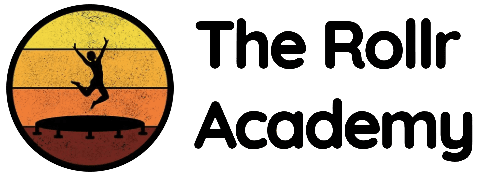Why Adults with Rhotacism Face Unique Challenges
Adult rhotacism presents distinct challenges that differ significantly from childhood cases. While children's brains are naturally wired for language acquisition, adults must work against years of ingrained speech patterns and overcome unique psychological and social barriers.
However, adults also have significant advantages: higher motivation, better self-awareness, more consistent practice schedules, and access to advanced technology. Understanding both the challenges and advantages is crucial for success.
Common Myth vs. Reality
❌ Myth: "Adults can't fix speech problems - it's too late"
✅ Truth: Adults achieve excellent results with proper techniques and commitment. Age is not a barrier to success.
The Professional Impact of Rhotacism
For adults, rhotacism often becomes most apparent in professional settings, where clear communication is crucial. Research shows that speech clarity significantly impacts career advancement, salary negotiations, and leadership opportunities.
Job Interviews
First impressions matter. Clear speech can be the deciding factor in competitive hiring situations.
Presentations
Professional presentations require confident delivery. R sound difficulties can undermine credibility.
Client Relations
Clear communication builds trust and rapport with clients and customers.
Leadership Roles
Executive positions often require public speaking and clear communication skills.
Phone Calls
Business calls without visual cues make speech clarity even more important.
Networking
Professional networking events can be challenging when speech affects confidence.
Career Fields Most Affected:
- Sales and Business Development: Clear communication directly impacts results
- Teaching and Training: Student understanding depends on speech clarity
- Healthcare: Patient communication and professional credibility
- Law and Legal Services: Courtroom and client presentations
- Media and Broadcasting: Clear articulation is essential
- Customer Service: Phone-based communication challenges
Adult-Specific Challenges and Solutions
Adults face unique obstacles when addressing rhotacism, but each challenge has proven solutions:
Challenge: Deeply Ingrained Muscle Memory
After decades of incorrect R production, the speech muscles have developed strong automatic patterns that resist change.
Solution: Slower, More Deliberate Practice
Adults need to consciously override automatic patterns through slower, more mindful practice. This means initially sacrificing speaking speed for accuracy, gradually building new muscle memory.
Challenge: Limited Practice Time
Work, family, and life responsibilities leave little time for structured speech practice.
Solution: Micro-Practice Sessions
Integrate short 5-10 minute practice sessions throughout the day: during commutes, while exercising, or during routine activities. Consistency matters more than duration.
Challenge: Social Embarrassment
Adults may feel self-conscious about making speech errors or practicing in front of others.
Solution: Private Practice and Gradual Exposure
Start with private practice using apps or recordings. Gradually introduce correct R sounds in low-stakes social situations before moving to professional settings.
Challenge: Perfectionist Expectations
Adults often expect rapid, perfect results and become discouraged by gradual progress.
Solution: Realistic Goal Setting
Set small, achievable milestones: first accurate R sound, then in syllables, then words, then sentences. Celebrate incremental progress.
Adult-Optimized Treatment Strategies
Adults benefit from treatment approaches specifically designed for mature learners:
1. Technology-Enhanced Learning
Adults excel with visual feedback and data-driven approaches. Modern speech apps provide:
- Real-time visual feedback on tongue positioning
- Progress tracking and analytics
- Flexible scheduling that fits busy lives
- Privacy for comfortable practice
2. Cognitive-Linguistic Approach
Adults can leverage their analytical abilities by understanding:
- The anatomy of R sound production
- Phonetic principles and sound patterns
- Error analysis and self-correction strategies
- Linguistic rules governing R usage
3. Intensive Short-Term Programs
Many adults prefer concentrated treatment rather than extended therapy:
- Weekend intensives or week-long programs
- Focused 30-day challenges
- Online bootcamps with structured progression
- Immersive practice experiences
4. Professional Integration
Connecting practice to professional needs increases motivation:
- Practice with work-specific vocabulary
- Role-playing professional scenarios
- Presentation skills integration
- Industry-specific communication goals
Timeline Expectations for Adults
Adults often achieve faster initial progress than children due to superior focus and motivation, but may need longer to fully automatize new patterns:
Typical Adult Progress Timeline:
- Weeks 1-4: Understanding and initial R sound production in isolation
- Weeks 5-12: R sounds in syllables and simple words with conscious effort
- Weeks 13-24: Natural R production in structured speech and reading
- Weeks 25-40: Automatic R sounds in conversational speech
- Weeks 41-52: Consistent accuracy under pressure and in professional settings
Factors That Accelerate Progress:
- Daily practice consistency (even 15 minutes)
- Use of technology-based feedback tools
- Professional guidance and accountability
- High motivation and clear goals
- Integration with daily communication needs
Adult-Friendly Practice Strategies
Effective practice for adults must fit into busy schedules while maximizing results:
The Commuter's Practice Plan:
- 5 minutes of R exercises during morning routine
- Practice R words during commute (silently or aloud if driving alone)
- Lunch break focused practice with app feedback
- Evening review and self-recording
The Executive's Approach:
- Schedule practice like important meetings
- Use business vocabulary for practice materials
- Practice presentation delivery with correct R sounds
- Track progress with data and metrics
The Parent's Method:
- Practice while children are at activities
- Use car time for private practice
- Integrate practice into bedtime stories (if children are young)
- Weekend intensive sessions during family downtime
Professional Support Options for Adults
Adults have several professional support options tailored to their unique needs:
Executive Speech Coaching:
- Specialized coaches who understand business communication
- Focus on professional presentation skills
- Flexible scheduling including evening and weekend sessions
- Results-oriented approach with clear timelines
Adult Speech Therapy:
- Clinicians experienced with adult learners
- Technology-enhanced treatment approaches
- Group therapy options for cost effectiveness
- Intensive program formats
Online Programs:
- Self-paced learning that fits any schedule
- AI-powered feedback and progress tracking
- Professional-grade tools accessible from home
- Community support from other adult learners
Ready to Transform Your Professional Communication?
Take our specialized adult assessment to create a personalized plan that fits your schedule and goals.
Maintaining Motivation as an Adult Learner
Adult motivation can fluctuate due to competing priorities and slower visible progress. Here are proven strategies:
Motivation Maintenance Strategies:
- Connect to career goals: Visualize specific professional benefits
- Track micro-progress: Celebrate small daily improvements
- Create accountability: Share goals with colleagues or family
- Invest financially: Paid programs increase commitment
- Focus on identity: Become someone who speaks clearly
- Document the journey: Record progress for motivation
Remember, you're not just changing a sound - you're unlocking professional potential, building confidence, and investing in lifelong communication skills. Every practice session brings you closer to the clear, confident speech that can transform your career and personal relationships.




